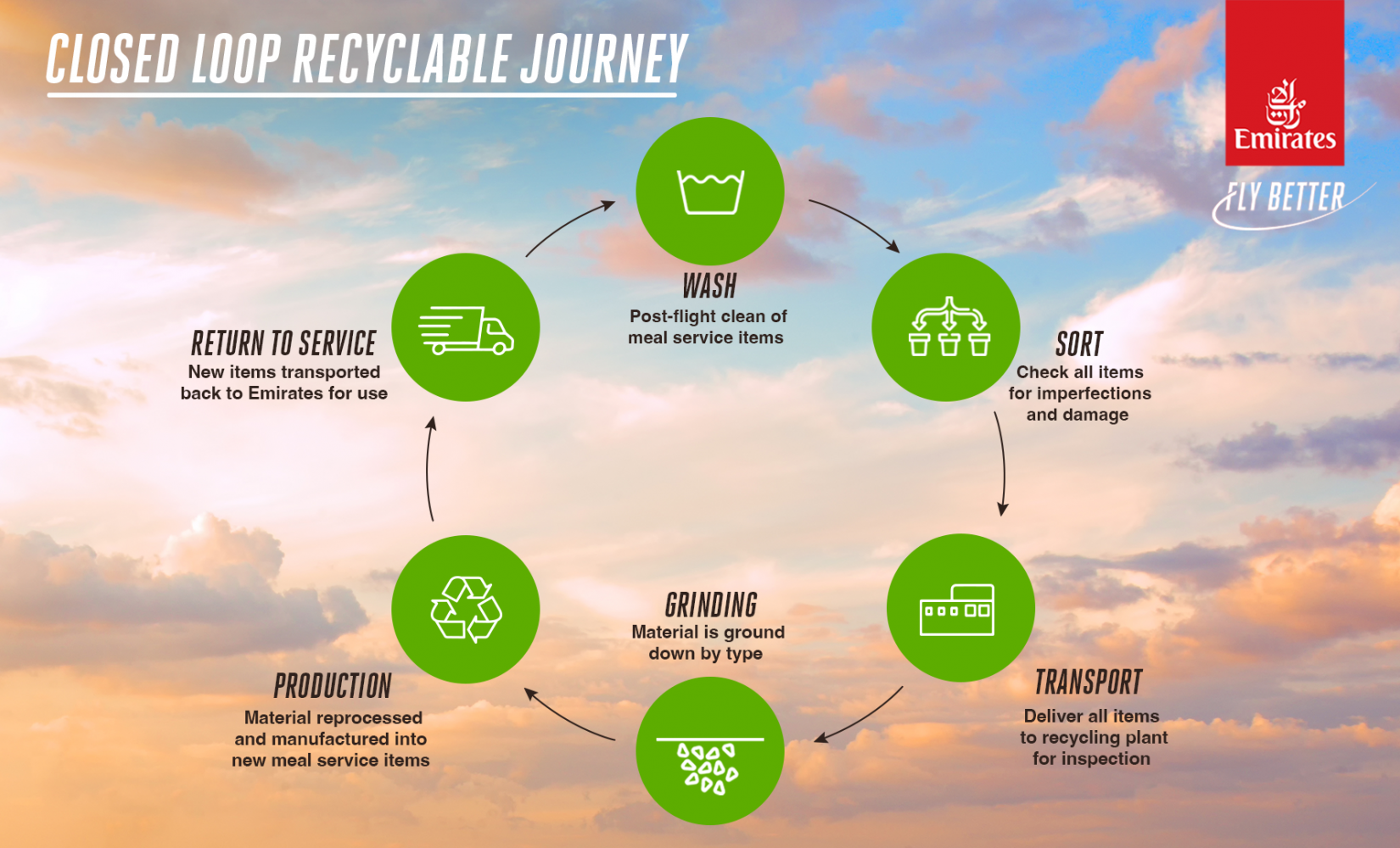您想继续阅读英文文章还
是切换到中文?
是切换到中文?

THINK ALUMINIUM THINK AL CIRCLE

Nowadays, the aviation industry places great importance on environmental sustainability. To minimise their carbon footprint and adopt eco-friendly practices, airlines worldwide are taking significant steps toward sustainable aviation. Among them, Emirates, one of the leading airlines in the world, has introduced an innovative waste management strategy, the closed-loop recycling system.

This system manages the waste generated during flights by collecting, processing, and reusing recyclable materials. With this article, we will try to explore how Emirates' waste management system contributes to a greener future.
Air travel yields a substantial amount of waste, including plastic bottles, aluminium cans, food packaging, and other disposable items. Unfortunately, most of this waste is diverted to landfills, contributing to environmental degradation. By recognising the need for an efficient and sustainable waste management system onboard their flights, Emirates has implemented the closed-loop recycling system.
Emirates has strict waste separation procedures on their flights, and the cabin crew collects and stores waste for processing. Trained personnel segregate materials at a specialised facility before sending recyclable items to recycling centres, maximising the recycling potential.
Emirates' closed-loop onboard waste recycling system offers numerous benefits for the environment and the aviation industry:
In conclusion, Emirates' closed-loop recycling waste system exemplifies the airline's dedication to environmental sustainability. By effectively managing and loop recycling onboard waste, Emirates reduces its environmental impact, conserves resources, and promotes a greener aviation industry. Other airlines can also learn from Emirates' innovative approach to waste management, paving the way for a more sustainable future.
Responses








